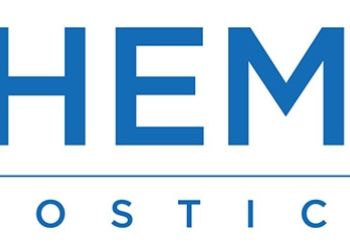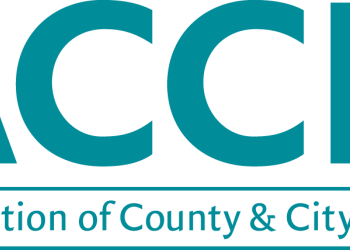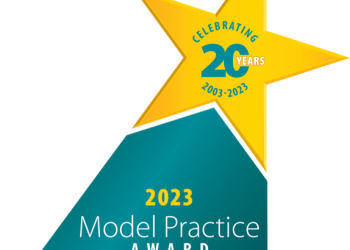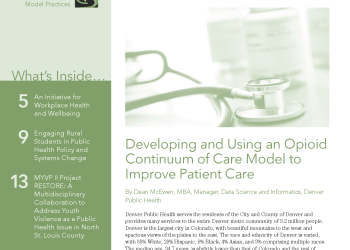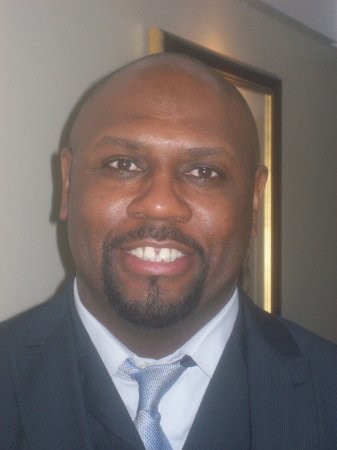 NACCHO’s Member Spotlight series features interviews with local health department leaders and staff about their careers in public health. This interview features Damon Chaplin, MBA, Health Director of the New Bedford Health Department in Massachusetts. Below he shares how community partners have come together to address the growing opioid epidemic and discusses how the accreditation process will help outline strategies for efficiently affecting better health outcomes in his community.
NACCHO’s Member Spotlight series features interviews with local health department leaders and staff about their careers in public health. This interview features Damon Chaplin, MBA, Health Director of the New Bedford Health Department in Massachusetts. Below he shares how community partners have come together to address the growing opioid epidemic and discusses how the accreditation process will help outline strategies for efficiently affecting better health outcomes in his community.
Tell us about your career path into public health.
I received a Bachelor of Science degree in biology from Central State University in Wilberforce, OH, and received my Master of Business Administration degree from Curry College. I am a first-generation college graduate and a legacy entrepreneur, which drives my passion for social innovation and cross-sector collaboration. When I say, ‘legacy entrepreneur,’ I say that with pride. My grandfather was one of the few who were able to purchase the land that he sharecropped. That land was eventually turned over to me. It’s a third-generation transfer of the same property that was once managed by slaves and is now owned by the grandchildren of slaves.
I have developed leadership skills as a local business owner and community development corporation board member, which have enabled me to communicate, administer, and develop strategic work plans and financial analysis. This includes key budgetary observations based on interpretation of statistical and financial data to support organizational vision, mission, and goals. These skills have allowed me to be health-focused but business friendly, which is a bit different for several code enforcement health departments.
I have been the Director of Public Health for the City of New Bedford, Massachusetts for the past year. Prior to working in New Bedford, I served as the Director of Local Public Health Initiatives and as a Regional Director for the Massachusetts Department of Public Health. In this role, I provided statewide leadership and direction to local health departments interested in applying for accreditation and forming public health districts using a shared service model for improving health equity and strengthening workforce development.
In addition, I have performed both field and managerial tasks for both the Boston Public Health Commission and the Massachusetts Department of Environmental Protection.
What are some of the highlights of your career since you’ve been working in this field? What makes the work that you do worthwhile?
Some of the highlights of my career include developing and managing the program operations for the Massachusetts Large Cities Coalition, which consists of the state’s 14 largest cities—ranging from Framingham with a population of approximately 70,000, to Boston with a population of more than 650,000. I have also developed, owned, and operated three successful start-ups in four years. One these included the acquisition and sale of an urban brown fields site in Boston, which required significant focus and dedication over several years for closure. Overall, my public health and entrepreneurial experiences have helped me develop both critical thinking and strategic planning skills, which have supported my passion for building winning relationships with key partners, stakeholders, and anchor institutions, in my role as the Chief Health Strategist.
I do the work that I do because public health is my life. As a child, I suffered from asthma and my mother was a smoker. She was unaware that her smoking was affecting my asthma; nor did my grandmother know that the incinerator smoke was affecting my asthma. For many years, I’ve dealt with an undiagnosed learning disability. I went through high school and my first couple of years of college having difficulty reading and competing with other classmates. I have family members that are in jail, family members that have been killed because of gang violence, some family that are drug users, and some recovering drug users. I grew up in a rough neighborhood in Boston. All those experiences I had are directly aligned with what we know now as the social determinants of health. Those weren’t conversations we were having in the 70s and 80s. It was nearly 10 years ago that I began to look at my life as a public health story, which made me decide that I want to be part of the solution.
What public health issues affect your community the most and what is your health department doing to address them?
The City of New Bedford has an estimated population of 105,000 residents, including approximately 10,000 undocumented immigrants. Due to decades of ecomnomic and demographic shifts, 23.5% of the New Bedford population lives in poverty—significantly higher than the state average of 11.4%. Like many legacy cities, New Bedford is confronted with the devastation of the opioid epidemic.
In response to the devastation the opioid crisis has caused in New Bedford, Mayor Jonathan Mitchell has brought together a multidisciplinary team to create the Greater New Bedford Opioid Task Force. The goal of the task force is to strengthen and align initiatives that are already taking place in the city and work on new initiatives as a group. The task force comprises members from more than 25 organizations, including police, hospitals, treatment centers, support services, community organizations, and faith-based organizations.
The New Bedford Health Department was recently awarded three substance-use-related grants funded by the Substance Abuse and Mental Health Administration and the Massachusetts Department of Public Health. Each grant uses the Strategic Prevention Framework to ensure data-driven planning and culturally competent, sustainable, and measurable implementation. In May 2018, we received a grant from the National League of Cities to develop strategies to address the opioid crisis in New Bedford.
What is the biggest change you’ve seen in public health since you started working in this field?
One of the biggest changes I have seen in public health since my career began during the mid-90s has been the strong shift away from traditional grassroots initiatives to a more data-driven, evidence-based, community of social practice. Although I support strong program evaluations and fiscal stewardship, I am often concerned about the somewhat prescriptive nature of funding opportunities and foundational support for many of our grassroots organizations.
For many cities like New Bedford, with strong community-based programs and services, general funding for program start-ups are often strained and sometimes restricted, as a result of the program’s inability to provide adequate “proof of concept.” As a result, many community-based organizations with innovative solutions to complex social problems often fail before ever having a chance to become fully functional, due to inadequate access to sufficient financial resources.
How are you positioning yourself or your health department for the future?
Since the emergence of the Public Health Accreditation standards in 2011, performance measures, by which municipal health departments are compared, have changed. As a result, the strategic framework has evolved. To meet these new commitments, a re-orientation of the health and human services delivery model will be needed to support organizational structures that promote community health and the development of the skills and capacity to adopt a stronger and more robust system of community health care.
My department will be submitting its application for public health accreditation this summer. This commitment to protecting and preserving the health and wellbeing of the populations we serve requires cross-sector and interdisciplinary approaches to health promotion. The accreditation process will help to outline strategies in a way that health inequalities and the social determinants of health can be consistently measured, monitored, and managed over a period of time.
How long have you been a member of NACCHO, and what value do you find in belonging to the organization?
This is my first year serving as a NACCHO board member. Prior to serving on the board, I was an avid user of NACCHO’s many resources, job boards, and reports. I have used the National Profile of Local Health Departments, and I think that supports a lot of that we do. In addition to the many resources and trainings NACCHO provides throughout the year, and at the annual conferences, I have also benefited from the wealth of information and knowledge shared during both planned and unplanned events, as a colleague, board member, and fellow health officer. It is always nice to have a friend who has been where you would like to go and is willing show you how to get there.
What do you like doing in your free time away from work?
I enjoy weight lifting, reading, and playing with my kids. I really enjoy spending quality time with my family. We often take long road trips, for which I am frequently coerced into driving. I also enjoy mentoring and joining with local partners to enhance the community experience for our youth and young adults. Lastly, I love learning new things and sharing my experiences with others.
For more interviews in the series, visit NACCHO Voice Member Spotlight.
